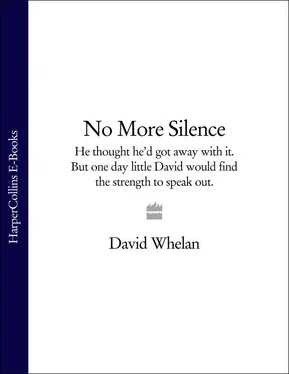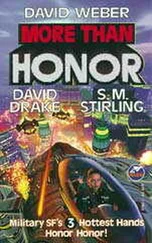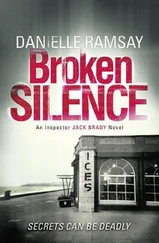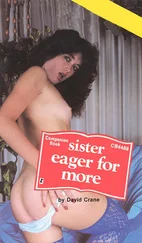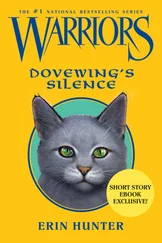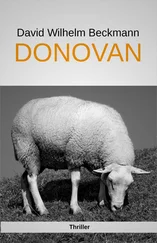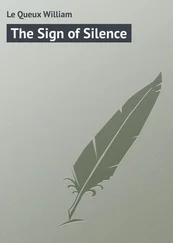They were clearly fascinated by me, this small stranger who had without ceremony been added to their number. They looked from me to my new parents, asking questions in an unfamiliar tongue; they had acquired Gaelic. Children learn by osmosis and it would not be long before that incomprehensible and musical language would morph into words and phrases that I could understand.
I brushed aside the clouds of insects that had formed around my head – midges. Those familiar with the west of Scotland will know the scourge of these minuscule and annoying creatures.
Morag and Willie MacDonald took me into the warmth of their home, warmth that was as emotional as it was physical. Heat emanated from a large open fire beside an Aga, upon which a great black kettle was coming to the boil. I would discover that this kettle boiled from dawn till bedtime. Morag walked into a wall of steam. To this day I remember her in a halo of cloud. She never strayed far from that cooker and its huge pots of potatoes and stew, which took two hands to carry to the wooden deal table in the middle of her kitchen. It was the heart of the home.
My first – and erroneous – impression of the croft house was that it seemed sparse and bleak, but it was soon lit up by the bright, if stern, Morag. In retrospect, I realise Morag had none of the vanities of the city women I had known. Her looks were unprepossessing. Make-up and hair-styling were dismissed as the work of the Devil. Morag was a devout Christian. Her uniform of shapeless dress, cross-over white pinny and men’s socks, rising out of sturdy shoes that would not have looked out of place on a man’s feet, was good enough, thank you very much.
Willie was her soul mate, a silent, strong, hard-working man with cool blue eyes that took in everything but gave little away. He, too, wore a uniform – dungarees under a suit jacket and wellington boots. The sleeves of his collarless shirt were invariably rolled up to reveal bulging biceps. The ensemble was completed by a ‘caidie’ – a bunnet, or flat cap – which was removed from his head only at the dinner table or to wipe the sweat from his brow.
Their home reflected the couple. The term ‘modern amenities’ would have meant little to them. The toilet was in a shed at the back of the small garden. It was a treacherous journey in the dark. There was no electricity. The soft glow of light in the three-bedroom croft was generated by paraffin lamp, and while the world had long since been seduced by the age of television, it was an apparatus that Morag regarded as an abomination and an affront to the Good Lord. An ancient battery-powered radio, which broadcast the mournful Gaelic songs that became one of the soundtracks of my life, was sufficient for Morag and Willie. It would take me some time to come to terms with this strange new world of the Western Isles, a place with its own unique personality.
When I arrived on the island, the community survived on crofting. In English terms, crofters would be tenant farmers. My new parents had the lifelong tenancy of the croft, which had been passed down through generations of the family. Morag and Willie paid their rent to the ‘laird’, in this case the Fifth Earl of Granville, a cousin of the Queen, who owned a 60,000-acre estate, part of which was divided into the small farms.
The Outer Hebrides are a bleakly beautiful collection of islands, stretching from the largest, Lewis, in the north, through Harris and the Uists to the butt of Barra, in the south. Separated from the mainland by the Sea of the Hebrides, it is a world apart in every sense. North Uist is flat, almost devoid of trees, and blasted by Atlantic winds that would soon cleanse me. Moorland extends as far as the eye can see in a landscape punctuated by croft-house chimneys and their plumes of peat-fuelled fire smoke. The adjoining crofting communities of North and South Uist, where Gaelic is the first language, are steeped in Highland history. When I eventually went to the local school there were children who had not spoken a word of English before they began their education.
This is the birthplace of heroines such as Flora MacDonald, the saviour of Bonnie Prince Charlie after the 1745 Jacobite Rebellion, which sought to restore the displaced Stuart dynasty to the thrones of Scotland and England. The romantic venture ended tragically with the defeat of the prince’s ragtag Highland Army by a superior British force at the Battle of Culloden in 1746. To this day, however, the memory of how Flora spirited away the fugitive prince ‘over the sea to Skye’ is still strong in the minds of the inhabitants of the islands.
Memory and heritage are precious things in a spectacular and timeless landscape ruled by majestic red deer, which roam a land of lochans teeming with trout, beneath a sky that is the domain of eagles. I had never seen or experienced anything like it. Until I became part of it, my horizon was defined by the distance from the front door of my house to the end of the street. This was another world, where quiet folk spun cloth that was fashioned into the clothes they wore. The food on their table came from the land, the fruits of their own labour.
It was my first evening at Knockintorran and I was about to partake of those fruits. To a child raised on watery soup and insipid stews, the richness and quantity of Morag’s fare would provoke the mother of all belly aches. All of us had somehow muddled through in the hours preceding dinner, operating in that self-conscious atmosphere in which much is thought but little is said. The social worker had long since departed. We were a guarded group as we gathered round the table, with the hatless Willie at its head. My brothers and sisters were subdued. There were obviously rules, which I knew nothing of, but I was street-smart enough to learn.
The table groaned under baskets of homemade bread and scones waiting to be smothered in butter, which had been churned by hand that day, and jam made from fruit grown in the garden. Morag emerged from her cloud of steam, bearing a large pot of potatoes, which she placed on the table. I reached out to take one and learned, somewhat painfully, the first rule of dining at Knockintorran. A wooden spoon tapped my knuckles.
‘Now, young David,’ said Morag, ‘you don’t snatch your food until we’ve thanked the Good Lord for what He’s given us. I’ll let you off this time because you don’t know any better, coming from that heathen city you’ve grown up in, but you will go to your bed hungry if I see bad manners like that from you again. Got it?’
I got it.
Willie bowed his head. Morag and the children followed suit as he intoned words in Gaelic. Later, when my ear attuned to the language, I would learn that he said, ‘Lord, for what we are about to receive, may we be truly thankful.’
When he finished the prayer, my new life began in earnest. Those who eat together become a family.
CHAPTER 3
Of Long Summer Days and Billy the Ram
Billy regarded me with solemn, unblinking eyes, lulling me into a false sense of security with his quiet dignity.
‘Go on, Davie,’ said a voice behind me. That was Johnny.
‘Have a go!’ This was Jimmy.
‘I don’t think you should,’ cautioned Irene.
‘You’ll know all about it if you fall off,’ warned Jeanette.
It had been several weeks since my arrival and I was settling nicely into my new life with my brothers and sisters, but I desperately wanted to be accepted. There was still a sense of distance between me and them. I knew that Billy, a ram of monstrous proportions, with great curling horns, might be the means to prove me worthy of their affection, but he petrified me. I was pretty scared of all the animals on the croft. If truth be told, I am still wary of anything on four legs. My knowledge of animals had been confined to the mangy cats and dogs that patrolled the streets of Glasgow.
Читать дальше
